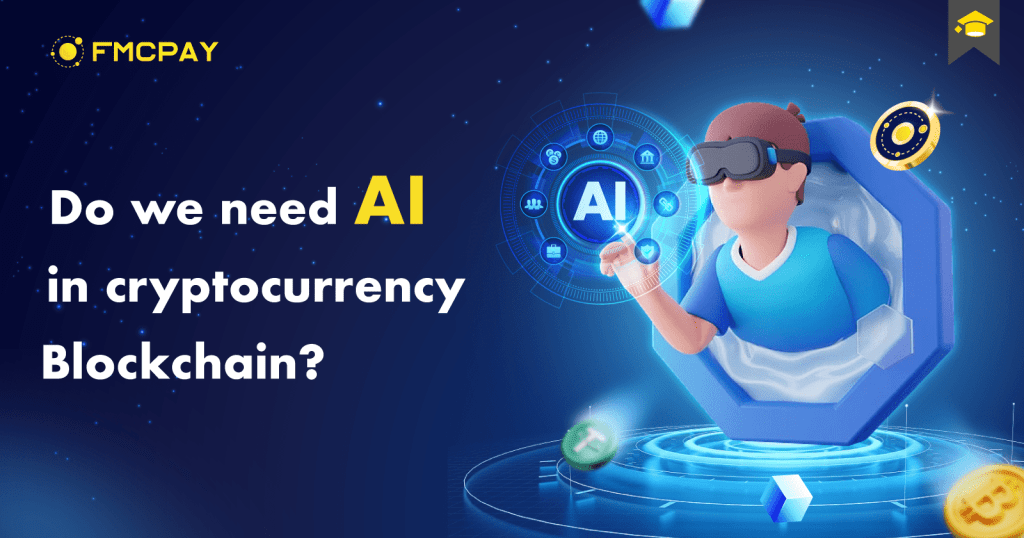The use of artificial intelligence (AI) in cryptocurrency and blockchain has been a topic of debate in recent years. While some argue that AI can benefit the industry significantly, others are sceptical about its potential risks and downsides.
The business of artificial intelligence (AI) is expected to be worth $22.6 billion by 2025, making it clearly a hot technology at present. People in the general public have witnessed the almost overnight rise of AI-generated photos and filters on social media, as well as Open AI’s ChatGPT and DALL-E tools.
Although AI has made great progress, there is still a long way to go before businesses and consumers can rely on it to do critical jobs. For instance, ChatGPT can generate text, but it is not sufficiently developed to be consistently correct. The consumer website CNET used artificial intelligence (AI) to write some of its pieces in an effort to improve productivity, but the outlet has since made significant revisions to the AI-written material.
The Evolution of AI
AI has the potential to revolutionize technology and have a positive effect on several sectors, including healthcare, blockchain, and banking. AI has the potential to be just as revolutionary if utilized ethically as the internet was in the early 2000s. The only constraints for AI are the algorithms we develop, the data we supply, and computer power.
AI will fundamentally change how we acquire data and reach important conclusions, from forecasting cancer risk to minimizing underwriting burnout in the insurance industry. Even racial and gender bias may be eliminated by this cutting-edge technology, resulting in more fair and equal hiring decisions.
Trading bots with AI capability are a further method that AI may level the playing field. When purchasing and trading stocks and cryptocurrencies, many retail investors have a tendency to make snap judgments that are frequently motivated by emotion. However, employing a data-driven strategy eliminates human bias and may level the playing field for more regular investors to make wise investments and plans.
AI’s negative aspects
While artificial intelligence (AI) offers a genuine chance of automating repetitive tasks and improving our lives, there are also significant risks that need to be considered. Many people are wary of AI and think that technology may usher in an uncertain future.
Internet hoaxes, false information, and scams have long been connected with it. In our society, the adage “Don’t believe everything you read on the internet” is engrained. Unfortunately, AI may increase the amount of false information online and negatively influence public perception. Deep fakes, or digitally manipulated films that remarkably resemble famous people, public figures, or anybody else the algorithm’s creator chooses to imitate, are very disturbing ideas. An AI company that just developed a tool that enables individuals to “talk” to departed loved ones may be even more unsettling.
Beyond eerie use cases, AI could just not be helpful for productivity just yet. According to a Stanford research, AI-using programmers write poor code. AI must be more precise and efficient if we want to integrate it into our operations.
Blockchain and AI’s possible integration
It is important to combine AI with other technologies to increase accuracy and prevent catastrophic mistakes. Blockchain, albeit still in its infancy, has special promise when it comes to data validation. Blockchain network data verification can guarantee that AI is using reliable data while computing findings and goods. Building training sets for AI is another amazing use of blockchain’s data permanence. Furthermore, keeping AI judgments in a blockchain database means that auditing is still fast, simple, and accurate.
Decentralized AI networks may also prevent big tech from monopolizing AI, which would increase consumer confidence. Blockchain oracles may also be useful for AI since they validate the information by comparing it to data from numerous sources. It’s intriguing to explore what lies ahead at the nexus of these two technologies since many NFT artists currently use AI in a nearby area.
AI has the potential to significantly advance civilization, but it also carries significant threats if properly applied. Because AI technology is inherently unstable, it requires both human control and checks & balances. To avoid an unreliable and dangerous future, we must hold AI accountable.
Conclusion
Despite the potential risks and downsides, the benefits of AI in the cryptocurrency and blockchain industry cannot be ignored. The technology has the ability to completely transform the banking sector and deliver improved security, efficiency, and customer service. However, it is essential to proceed cautiously with the application of AI in the cryptocurrency and blockchain industries and to keep an eye on its effects on the market.

